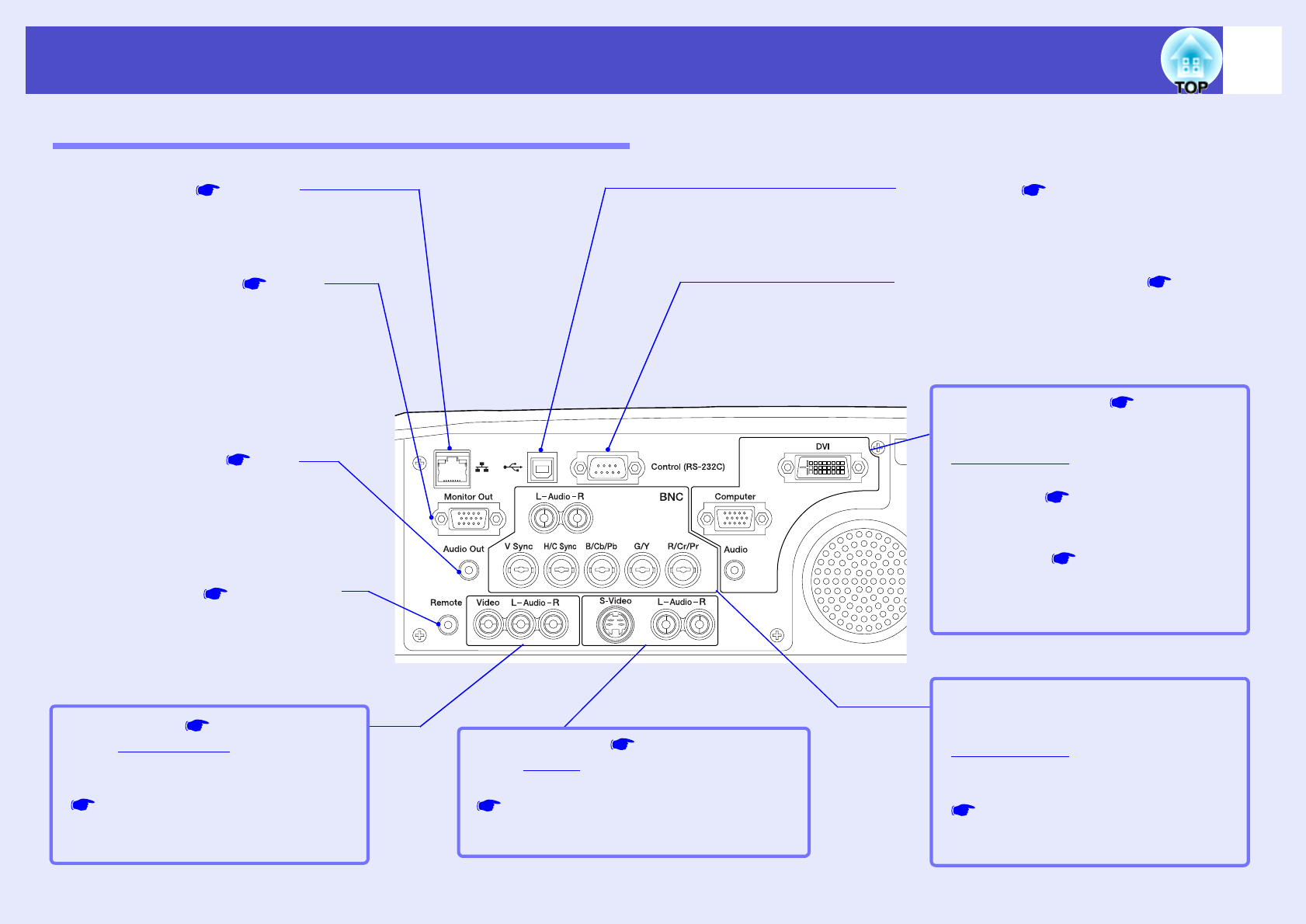
10
Part Names and Functions
User’s Guide
Input/Output Ports (EMP-7900)
•
••
•
[USB] port p.23, p.157
Connects the projector to a computer via the USB
cable when using the wireless mouse function.
•
••
•
[Video] port p.26
Inputs composite video
g signals from a
video source.
•
••
•
[Audio] ports (for [Video] port)
p.29
Input audio signals from the source that is
connected to the [Video] port.
•
••
•
[Audio Out] port p.31
Outputs the audio signals from the
selected video source to external speakers.
•
••
•
[Remote] port p.14, p.151
Connect the optional remote control cable
set to input signals from the remote control.
•
••
•
[Monitor Out] port p.25
Outputs currently-projected analogue-RGB
signals from a computer to an external
monitor. It is not compatible with digital-
RGB signals from computers and signals
from video equipment.
•
••
•
[Computer] port p.21, p.28
Input analogue RGB video signals from a
computer and RGB video signals and
component video
g signals from other
video sources.
•
••
•
[DVI] port p.22
Inputs digital RGB computer video signals.
•
••
•
[Audio] port (for [Computer],
[DVI] port) p.29
Inputs audio signals from the equipment
connected to the [Computer] port or the
[DVI] port.
•
••
•
[BNC] ports
Inputs analogue-RGB signals from a
computer and RGB-video signals and
component video
g signals from video
equipment.
•
••
•
[Audio] ports (for [BNC] port)
p.29
Input audio signals from the source that is
connected to the [BNC] ports.
•
••
•
[Control (RS-232C)] port p.157
Connects the projector to a computer using
an RS-232C cable. This port is for control
use and should not be used by the customer.
•
••
•
[S-Video] port p.27
Inputs S-Video
g signals from a video source.
•
••
•
[Audio] ports (for [S-Video] port)
p.29
Input audio signals from the source that is
connected to the [S-Video] port.
•
••
•
Network port p.101
Use to connect the projector to a network.


















